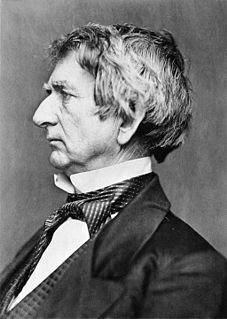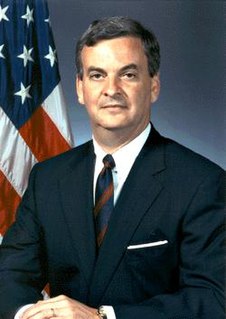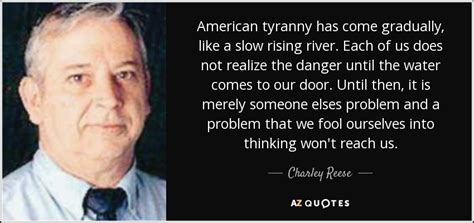A Quote by William H. Seward
But I deny that the Constitution recognizes property in man.
Quote Topics
Related Quotes
If cruelty is no longer declared unlawful, but instead is applied as a matter of policy, it alters the fundamental relationship of man to government. It destroys the whole notion of individual rights. The Constitution recognizes that man has an inherent right, not bestowed by the state or laws, to personal dignity, including the right to be free of cruelty. It applies to all human beings, not just in America - even those designated as ‘unlawful enemy combatants.’ If you make this exception, the whole Constitution crumbles.
It is not the right of property which is protected, but the right to property. Property, per se, has no rights; but the individual - the man - has three great rights, equally sacred from arbitrary interference: the right to his life, the right to his liberty, the right to his property The three rights are so bound together as to be essentially one right. To give a man his life but to deny him his liberty, is to take from him all that makes his life worth living. To give him his liberty but take from him the property which is the fruit and badge of his liberty is to still leave him a slave.
In the latter sense, a man has a property in his opinions and the free communication of them. He has a property of peculiar value in his religious opinions, and in the profession and practice dictated by them. He has an equal property in the free use of his faculties and free choice of the objects on which to employ them. In a word, as a man is said to have a right to his property, he may be equally said to have a property in his rights.
My position as regards the monied interests can be put in a few words. In every civilized society property rights must be carefully safeguarded; ordinarily and in the great majority of cases, human rights and property rights are fundamentally and in the long run, identical; but when it clearly appears that there is a real conflict between them, human rights must have the upper hand; for property belongs to man and not man to property.
The Iron Throne is mine by rights. All those who deny that are my foes." "The whole of the realm denies it, brother," said Renley. "Old men deny it with their death rattle, and unborn children deny it in their mothers' wombs. They deny it in Dorne and they deny it on the Wall. No one wants you for their king. Sorry.
It is evident that the right of acquiring and possessing property, and having it protected, is one of the natural, inherent, and unalienable rights of man. Men have a sense of property: Property is necessary to their subsistence, and correspondent to their natural wants and desires; its security was one of the objects, that induced them to unite in society. No man would become a member of a community, in which he could not enjoy the fruits of his honest labour and industry.










































